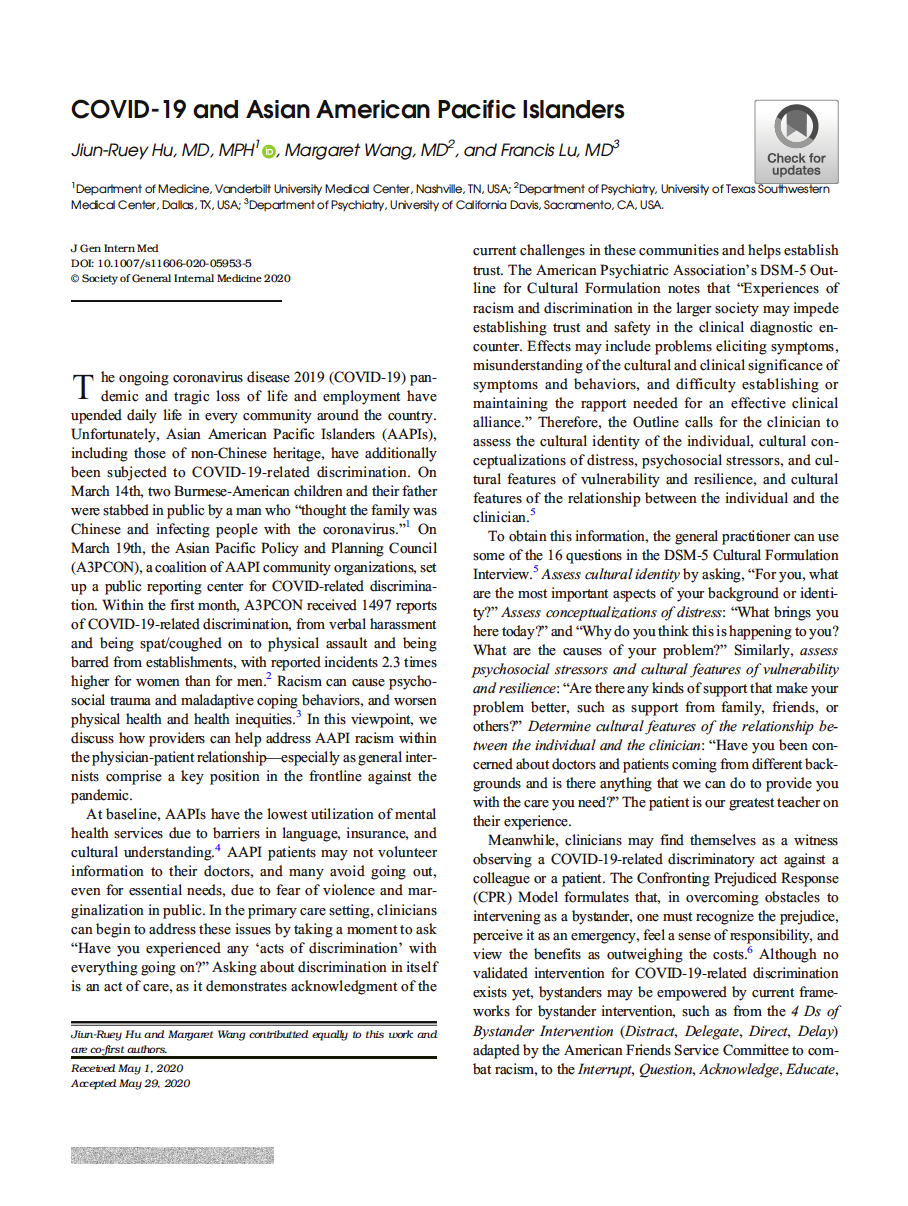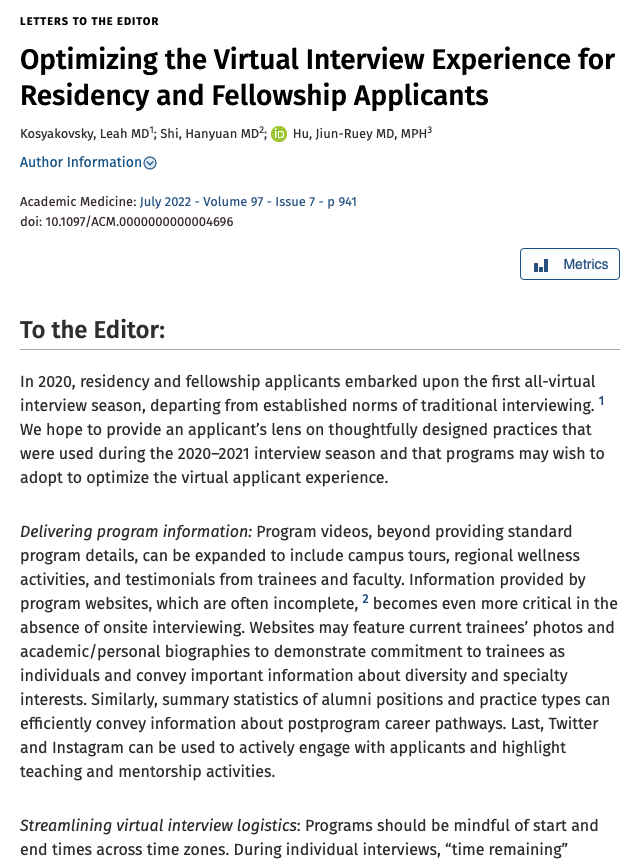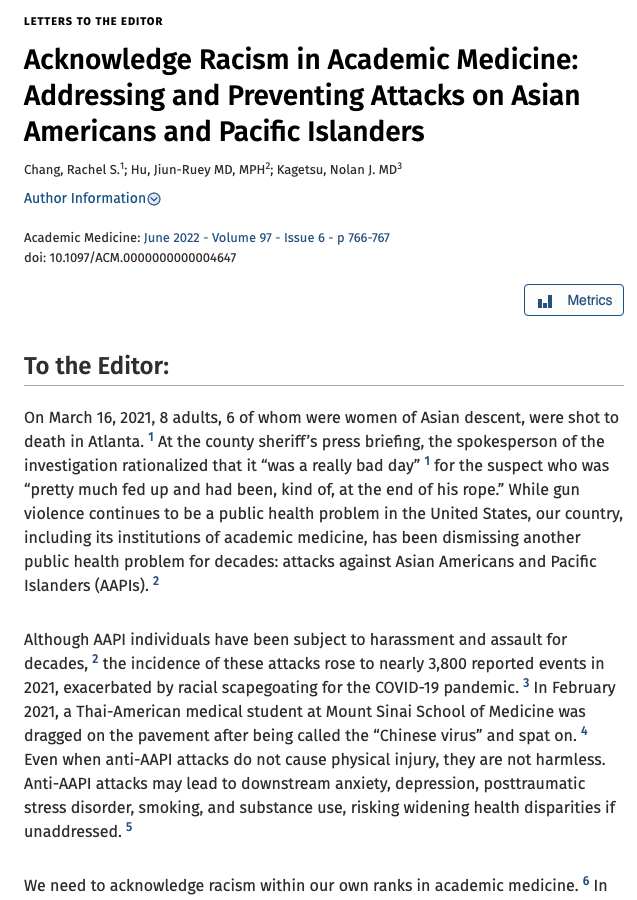📝 Abstract
The ongoing coronavirus disease 2019 (COVID-19) pandemic and tragic loss of life and employment have upended daily life in every community around the country. Unfortunately, Asian American Pacific Islanders (AAPIs), including those of non-Chinese heritage, have additionally been subjected to COVID-19-related discrimination. On March 14th, two Burmese-American children and their father were stabbed in public by a man who “thought the family was Chinese and infecting people with the coronavirus.”1 On March 19th, the Asian Pacific Policy and Planning Council (A3PCON), a coalition of AAPI community organizations, set up a public reporting center for COVID-related discrimination. Within the first month, A3PCON received 1497 reports of COVID-19-related discrimination, from verbal harassment and being spat/coughed on to physical assault and being barred from establishments, with reported incidents 2.3 times higher for women than for men.2 Racism can cause psychosocial trauma and maladaptive coping behaviors, and worsen physical health and health inequities.3 In this viewpoint, we discuss how providers can help address AAPI racism within the physician-patient relationship—especially as general internists comprise a key position in the frontline against the pandemic.


